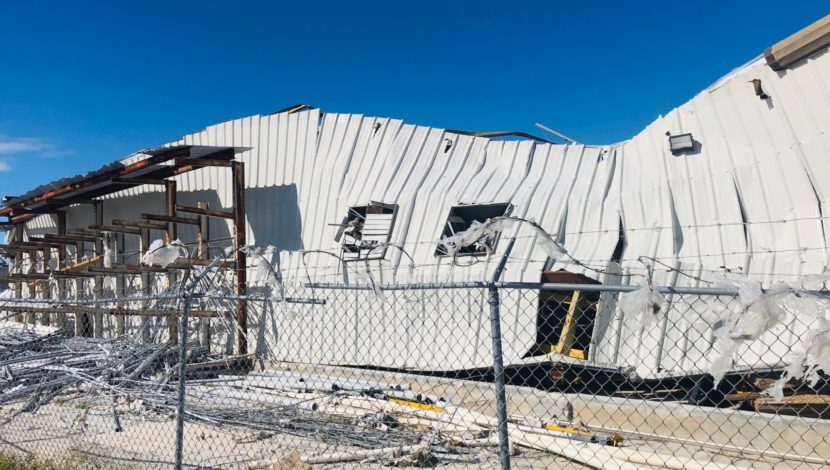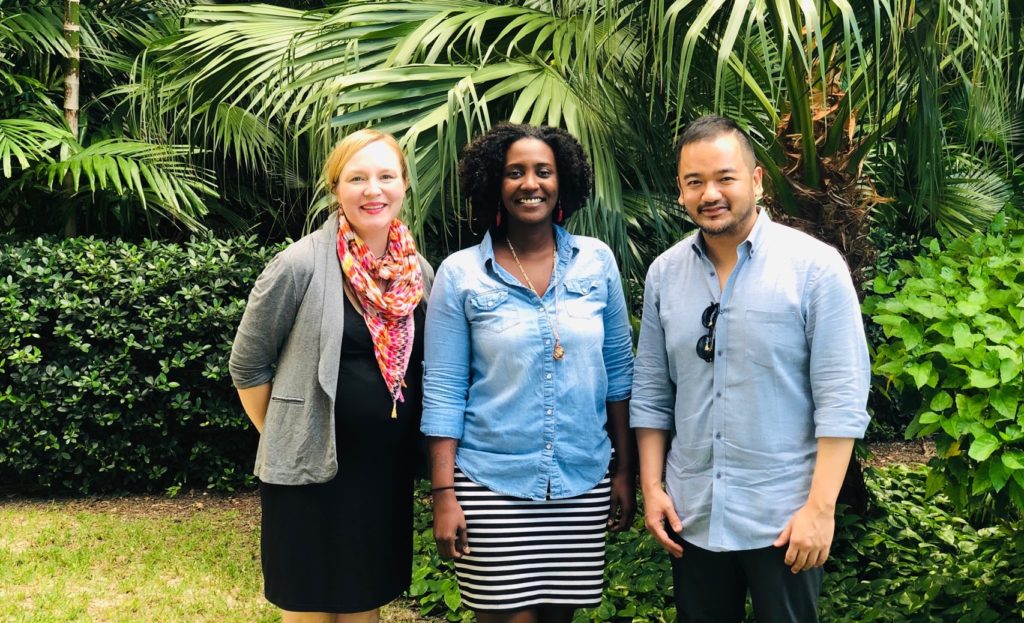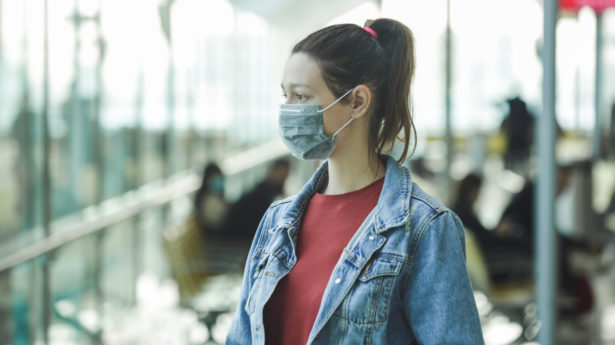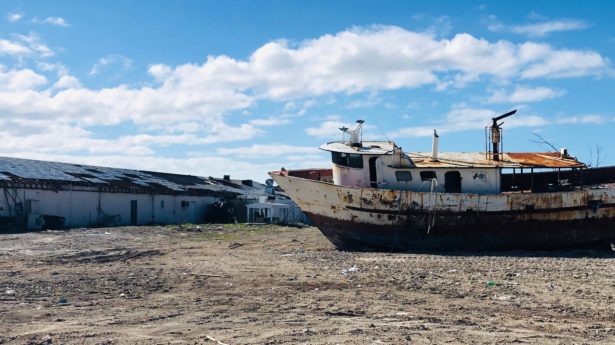The Unitarian Universalist Service Committee advances human rights through grassroots collaborations.
Bahamians Cope with a Second Disaster as COVID-19 Spreads

By on May 11, 2020
In the fall, UUSC responded to the widespread damage brought by Hurricane Dorian. The storm caught many in the Caribbean archipelago of 700 islands by surprise when it struck Great Abaco and Grand Bahama islands on September 1, 2019. Weather experts claim that Dorian’s strength—wind gusts of up to 220 mph and sustained winds of 185 mph—would have effectively made it a Category 6 storm if such a designation actually existed. With the possibility of well over a thousand deaths, 90 percent of structures on Great Abaco destroyed, 70,000 people left homeless, and more than 14,000 people displaced, Dorian is the most devastating natural disaster in the country’s history. The Inter-American Development Bank estimates the damage at $3.4 billion, or roughly 25 percent of the nation’s gross domestic product (GDP).
Seven months later, most emergency relief funding—provided by international NGOs and government aid agencies—has evaporated and government shelters have emptied, leaving survivors mostly on their own to determine long-term livelihood options. The government’s aid program is now focused largely on housing and home repair managed under the newly-created Disaster Reconstruction Authority. However, given the magnitude of destruction, and now with the international COVID-19 crisis effectively halting what little international NGO work was remaining in Abaco, the prospects for a return to their homes and a semblance of normalcy for the tens of thousands of storm evacuees who remain displaced seems impossible.
Still reeling from the devastation of the storm, evacuees are now experiencing the impact of COVID-19. As of April 23rd, the country has reported 70 confirmed cases and 9 deaths. In response, the government has issued lockdown orders, closing virtually all business and service providers with the exception of grocery stores, hospitals and other essential services. People are asked to remain indoors until the lockdowns are lifted. The shutdown of business and normal life is compounding the trauma of displacement, further hindering a return to normalcy.
As part of our Dorian crisis response work, UUSC continues to support Bahamian civil society organizations to build community resilience and social integration among communities that are hosting storm evacuees, with an aim to engage and reach the most vulnerable among them and to develop research that can influence local practices and policy development for more effective crisis response efforts in the future. At the same time, with the introduction of COVID-19, we are listening to our partners, pivoting support where needed, and exploring ways to address the compounding trauma, learning from partners in other areas of our work.

In New Providence, Hands for Hunger used UUSC support in the months after the storm to fight food insecurity among Dorian evacuees and has recently begun to step up its work in distributing food among needy families and individuals in the face of COVID-19. This month they began piloting a new digital, contact-less food voucher program among 30 Dorian-affected families, a program which they aim to expand to other vulnerable communities given the public health risks and economic decline brought on by the coronavirus.
Equality Bahamas has wrapped up its six-month food distribution operation in conjunction with a local community partner, and will use UUSC support to survey the ongoing needs of the most vulnerable storm evacuees, which include mostly women and Haitian migrants. The research, which will include demographic information as well as information on unemployment, income, housing, accessibility of government services, and experiences in accessing government, private, and NGO resources and services, will be publicly reported and will form the basis of an incubator for affected people temporarily residing in Nassau. The incubator will invite participants to identify a problem and design potential solutions, with the end goal to develop a proposal for effective, people-centered disaster recovery to serve as a guide for government, private sector, and NGO actors.
On the island of Eleuthera, the One Eleuthera Foundation (OEF), is a local NGO that responded after Hurricane Dorian hit neighboring islands, by welcoming evacuees and providing them with emergency short-term housing and food. With UUSC support, OEF intends to pivot its Dorian emergency response program to a social integration and economic development program, focused on issues of health and wellness, housing, employment, and small business development needs. The organization will also begin to identify the issues of undocumented and unregistered Creole-speaking Haitian evacuees across the island, many of whom have been left out of any official response efforts.
UUSC’s basic tenet—rooted in partnership, ready to respond—is more important than ever with the compounding impact of these dual crises. With UUSC support, Bahamian civil society is now poised to use Dorian as a rallying point for long-term mobilization that builds community resilience and advocates for more accountable governance. UUSC’s partners in the Bahamas are at the forefront of this crucial work—ensuring that the most affected and vulnerable communities, particularly Haitian migrants and women, are included in crisis response planning; that research can be effectively gathered to create better government policies; that the fabric of local communities is not only held intact in times of trouble, but also strengthened through long-term resilience and community engagement; and that communities have the tools and support they need to recover from the trauma they have experienced.
Photo Credit: UUSC
***
About UUSC: Guided by the belief that all people have inherent worth and dignity, UUSC advances human rights globally by partnering with affected communities who are confronting injustice, mobilizing to challenge oppressive systems, and inspiring and sustaining spiritually grounded activism for justice. We invite you to join us in this journey toward realizing a better future!

